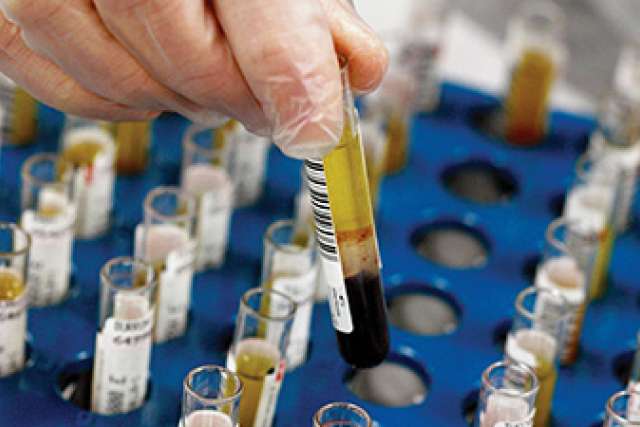A state advisory committee co-chaired by Dr. Kelsey Martin, dean of the David Geffen School of Medicine at UCLA, has issued recommendations on how to improve the health of Californians through precision medicine, a burgeoning field that seeks to use genetic, environmental and other forms of health-related data to develop personalized diagnostics and treatments closely targeted to individual patients.
Martin's role in the state effort reflects UCLA Health's broader commitment to precision medicine, as evidenced by the establishment in 2016 of the UCLA Institute for Precision Health. The Institute is a virtual home for precision health activities at UCLA that facilitates large-scale genetic and genomic research, creates new opportunities for innovative discovery and reinforces UCLA's international leadership in education, information technology, and clinical care. The institute brings together faculty with a wide range of expertise, including both basic and clinical research, as well as engineering, information science, public health and others.
"To bring the many benefits of precision health to patients will require strong partnerships to support innovation in healthcare and medicine," Martin said. "This collaboration—within institutions, across institutions, between care givers and patients, between public and private institutions, and across communities—will help ensure that California leads the way in driving transformative change in healthcare to improve quality of life globally."
Then-Gov. Jerry Brown formed California's Precision Medicine Advisory Committee in 2017 to make recommendations for improving health and healthcare in California through precision medicine. This effort complements the California Initiative for the Advancement of Precision Medicine, also launched by Brown, a $53-million, multi-year program to fund research and pilot programs in precision health across the state.
The committee is comprised of a diverse group of stakeholders representing academia, industry, biotech, healthcare, policymakers and consumers from California. The co-chairs are Martin, who is also a professor of biological chemistry and of psychiatry and biobehavioral sciences, and holder of the Gerald S. Levey, MD, Endowed Chair; and Dr. Atul Butte, the Priscilla Chan and Mark Zuckerberg Distinguished Professor of pediatrics at the UC San Francisco School of Medicine.
The state report, "Precision Medicine: An Action Plan for California," includes policy and legislative recommendations in five key areas: Data Security and Data Sharing; Patient Partnerships; Education and Workforce Development; Regulatory Issues, and Health Economics. UCLA has pioneered numerous efforts already underway to advance precision health that align with the committee recommendations.
Building secure data platforms for research was among the top recommendations from the committee. During the last few years, UCLA has been instrumental in developing the UC Health Data Warehouse, an ambitious initiative to create a large-scale repository for clinical data from electronic health records from the University of California's five academic medical centers. In addition, UCLA's Institute for Precision Health has pioneered an effort to build a large-scale repository of clinical and genetic information to facilitate translational research. To date, UCLA has obtained voluntary consents from approximately 25,000 UCLA Health patients to provide biological samples to help advance research and improve treatment for patients with cancer, heart disease, diabetes and other medical conditions.
Given the importance of preparing the future workforce for the precision medicine era, UCLA also has approved plans to develop an accredited master's degree program in genetic counseling within the Department of Human Genetics. The goal of the program is to train counselors in clinical genomic medicine to guide the evolving field of genetic counseling.
Ensuring that all patients in California have access to equitable care, UCLA is working with the Los Angeles County Department of Health Services to develop models to ensure that all patients in the county and throughout California have access to precision health services at a sustainable cost. This effort in demographically diverse Los Angeles is especially important given the need to ensure access to precision health for all who could benefit.
"Continuing state investment in precision health and medicine is needed," the state report says.
"Precision health represents the future of medicine," said Dr. Clara Lajonchere, deputy director of the Institute for Precision Health and an adjunct professor of neurology, who worked closely with the committee to develop recommendations for the state report. "UCLA Health is eager to provide continued leadership and work with Gov. Gavin Newsom's administration and all stakeholders to support this important state effort."
The Institute for Precision Health is a campus-wide initiative formed with the support of UCLA Chancellor Gene Block; Dr. John Mazziotta, vice chancellor for health sciences and CEO of UCLA Health; Martin, and Johnese Spisso, president of UCLA Health and CEO of the UCLA Hospital System. The institute director is Dr. Daniel Geschwind, the senior associate dean and associate vice chancellor for precision medicine, and the Gordon and Virginia MacDonald Distinguished Chair in Human Genetics.



